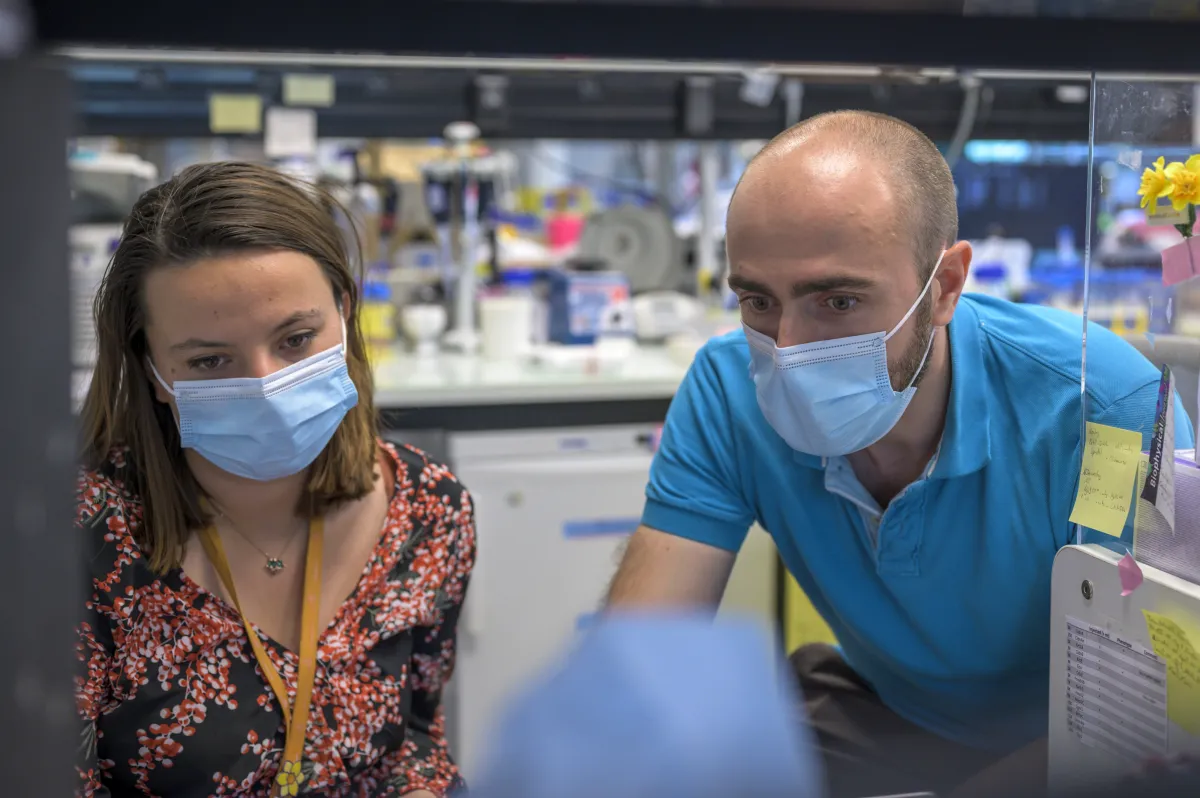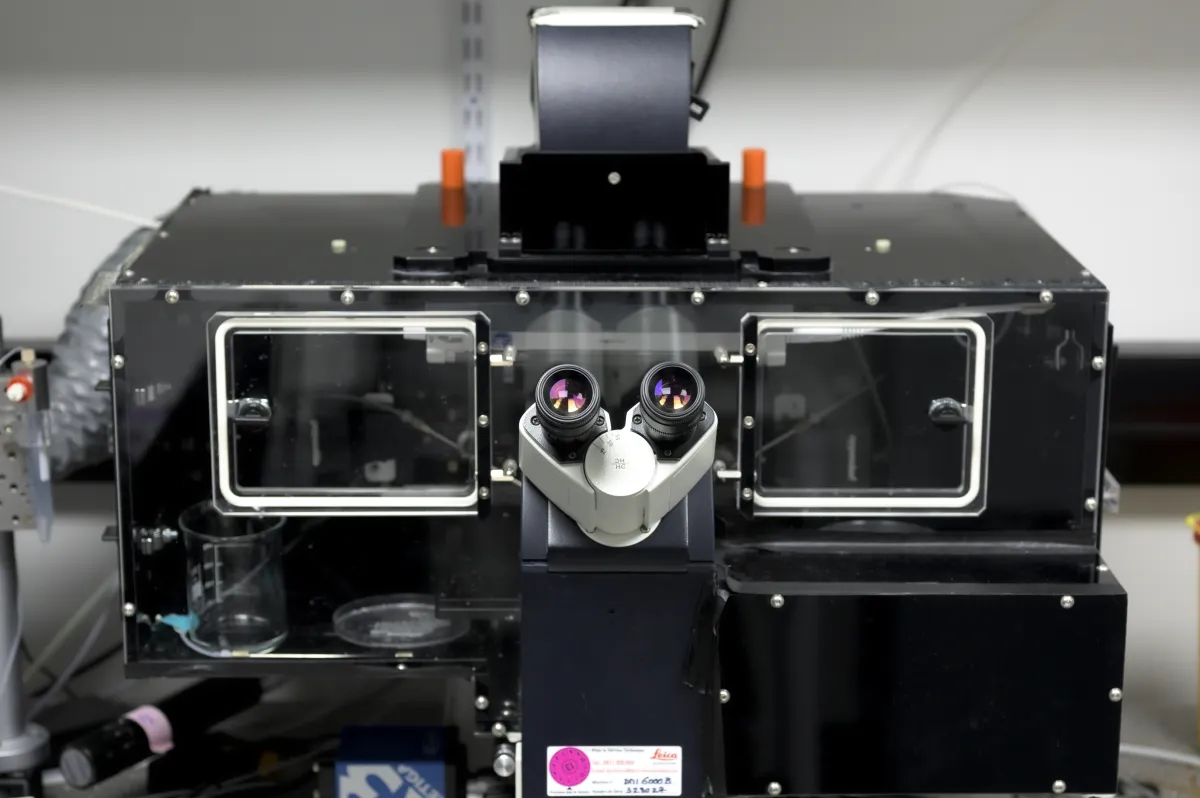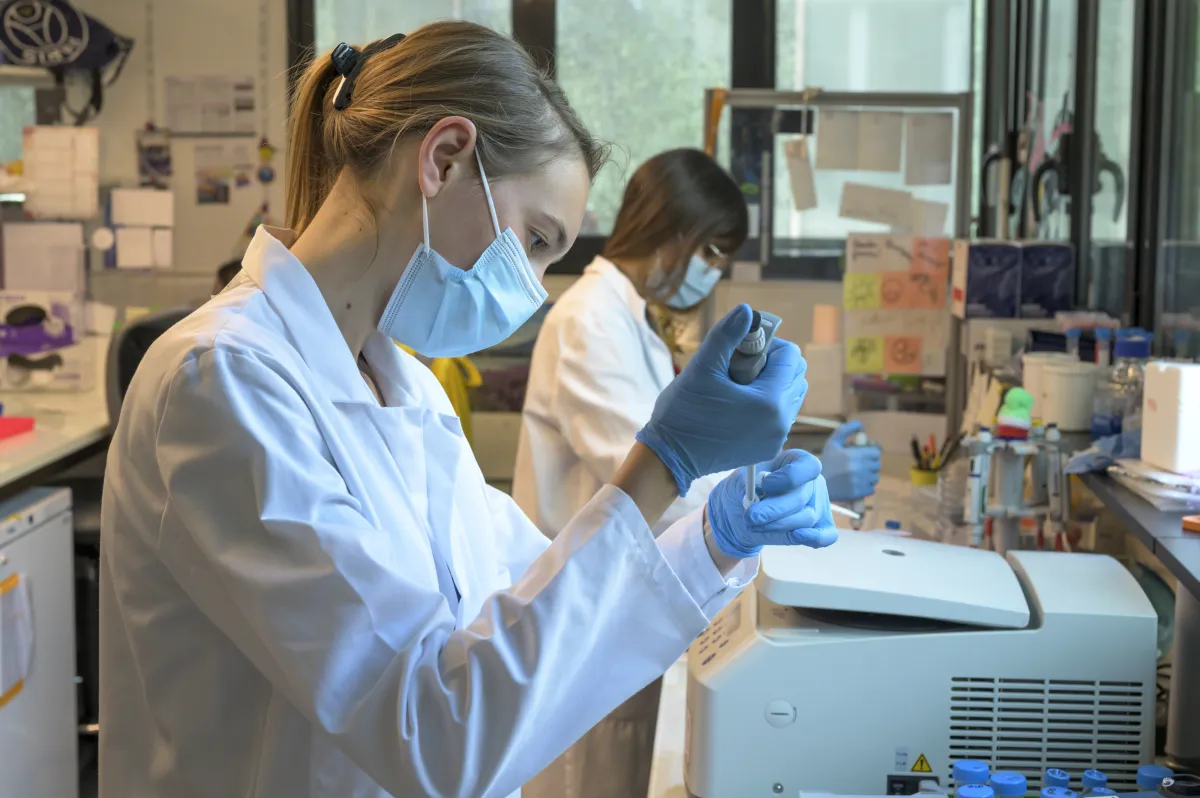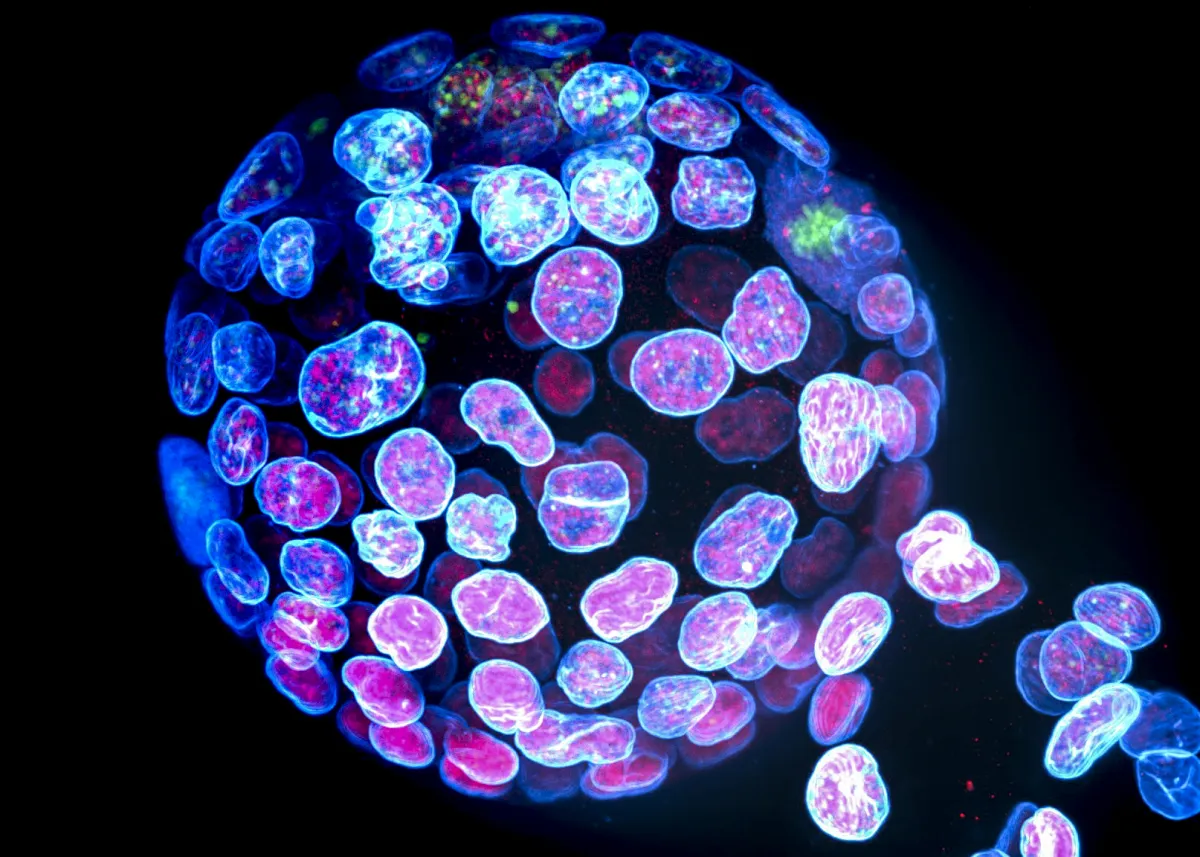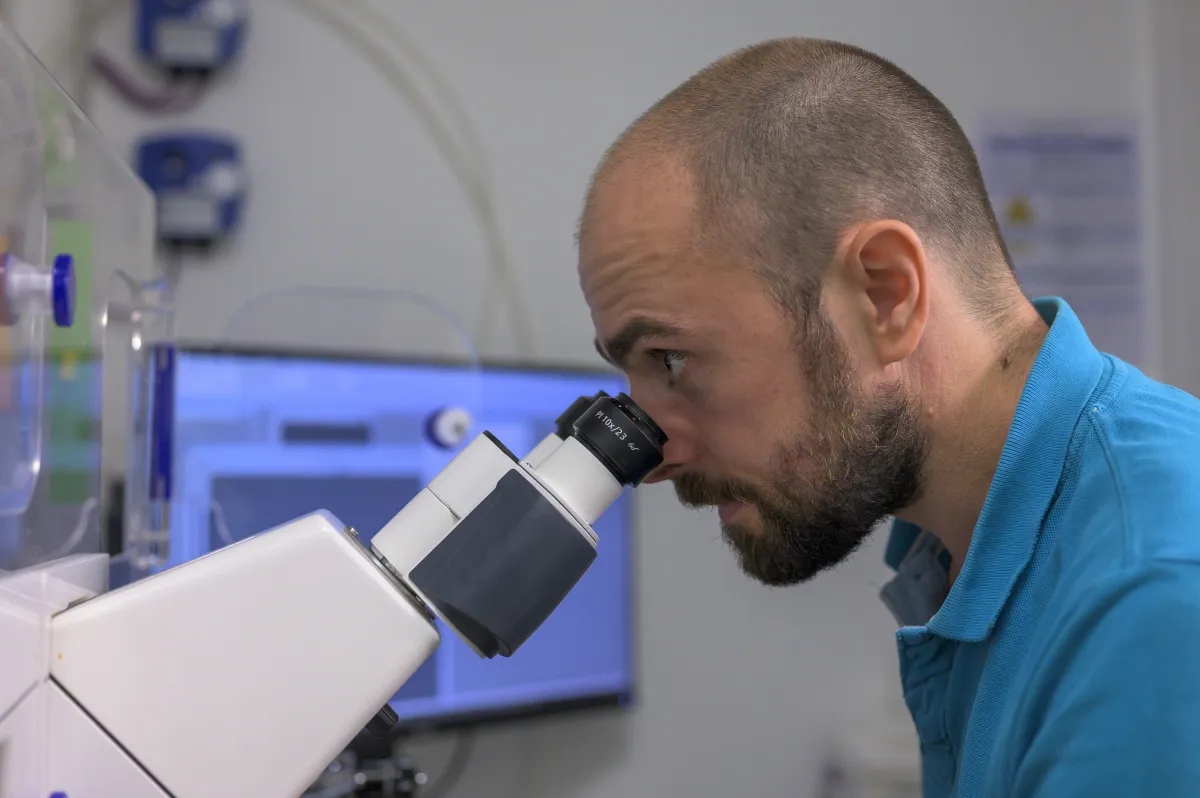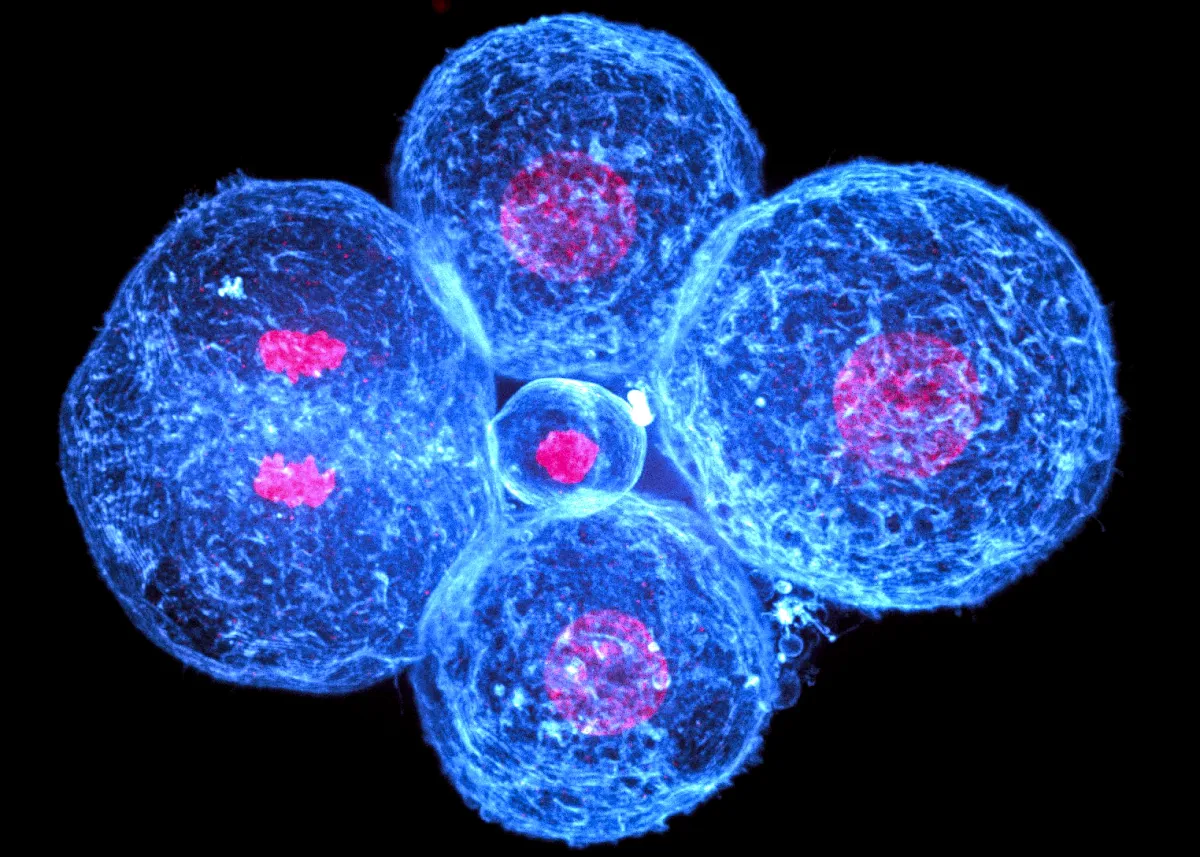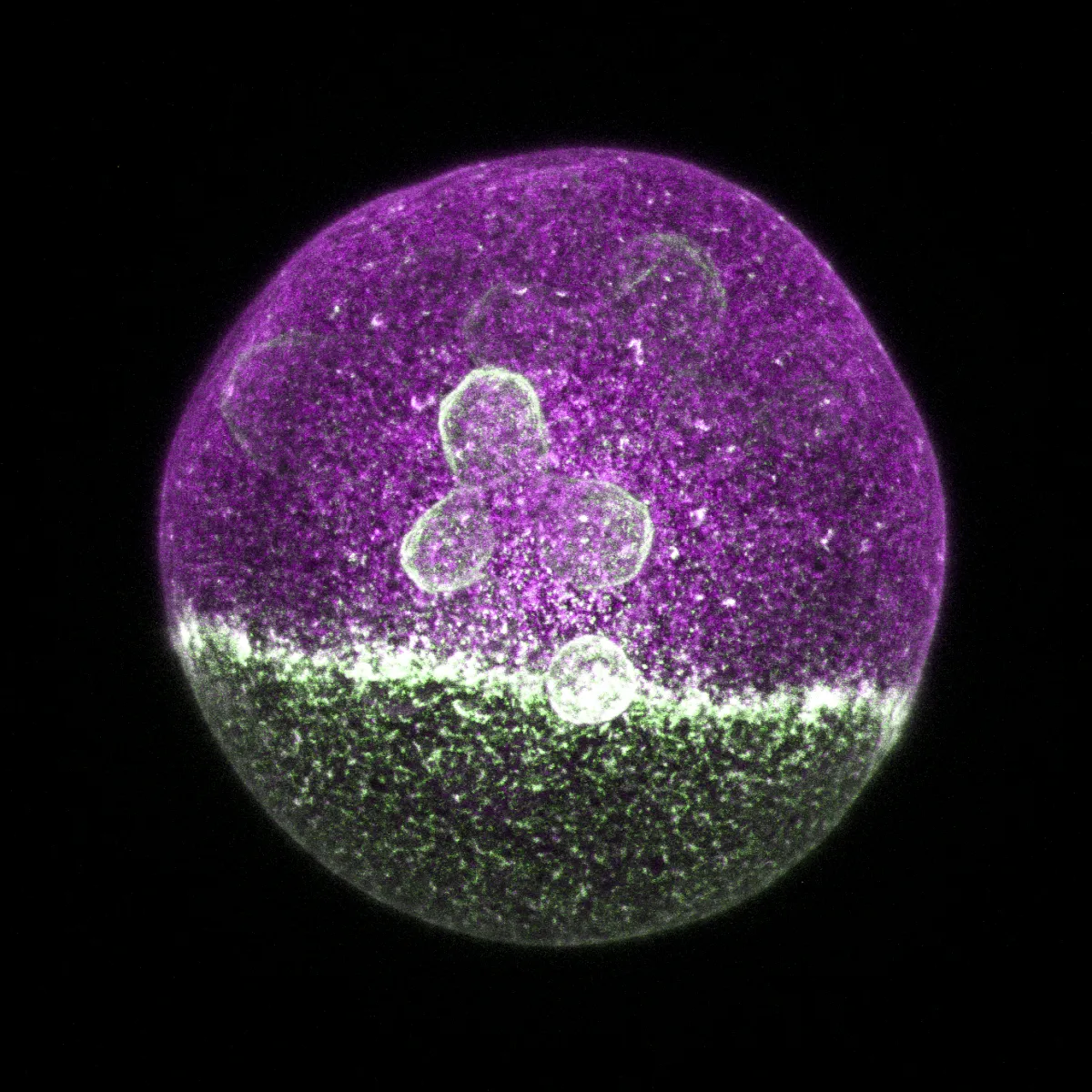Jean-Léon Maître Understanding the influence of mechanical forces on embryonic cell development
Jean-Léon Maître, CNRS researcher, head of the Mammalian Development Mechanics team at the Curie Institute, Paris
- 2021 • Bettencourt Prize Coups d'Élan pour la recherche française
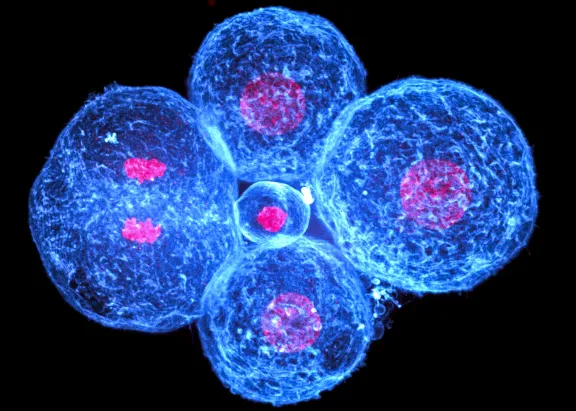
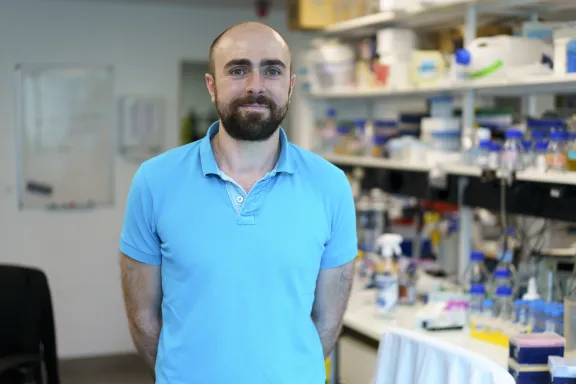

The 2021 Bettencourt Prize to Boost French Research went to developmental biology researcher Jean-Léon Maître for his work on the trophectoderm.
Measuring the forces that give shape to life
During embryonic development, cells use the information in their genes to form the organism. This leads to a series of events in which cells divide, die, become deformed and move. Jean-Léon Maître measures and studies mechanical forces to understand their impact on cell and embryonic development.
He and his team are examining the first steps in the development of the mouse embryo, even before its implantation in the uterus. Their current focus is the trophectoderm, the mammalian embryo’s first epithelium. The trophectoderm, which later becomes the placenta, surrounds a pocket of liquid called lumen and a group of cells that will generate all the embryo’s tissues. The trophectoderm stretches as the embryo grows, deforming not only the cells that make it up but also their nuclei, which contain all the genetic information.
Dr. Maître will ask three questions to understand the mechanisms that allow these cells to stretch and their consequences:
- How do trophectoderm cells increase their surface area while stretching? - How does the cell nucleus flatten out and what are the consequences for genetic expression? - How do cell stretching and nuclear deformation affect the trophectoderm’s future and the embryo’s implantation in the uterus?
The foundation’s support
The Bettencourt Prize to Boost French Research will allow the laboratory to acquire an optical tweezer system to measure and change the forces acting on cells in early-stage embryo development. The system involves using a laser to handle microscopic elements such as cells and nuclei.
The device, combined with a powerful microscope with an incubation system to grow mammal embryos, will be the only one in France.
Jean-Léon Maître in a few words
Jean-Léon Maître is a biologist specializing in embryonic development. His PhD work, which he did in Germany and Austria from 2007 to 2012, contributed to understanding the zebrafish embryo’s three-dimensional organization using micropipette aspiration to measure adhesion between cells. During his post-doctorate in Heidelberg, he applied a similar method to mice to reveal, for the first time, the role of contraction in the position and future of cells in the embryo.
In 2016, he set up a team at the Curie Institute in Paris. Since then, he has explored mechanical forces and their consequences during early embryonic development in mammals. He collaborates closely with mathematicians and physicists and uses state-of-the-art microscopy and precision tools capable of measuring forces that may seem extremely weak but are crucial for embryonic development.
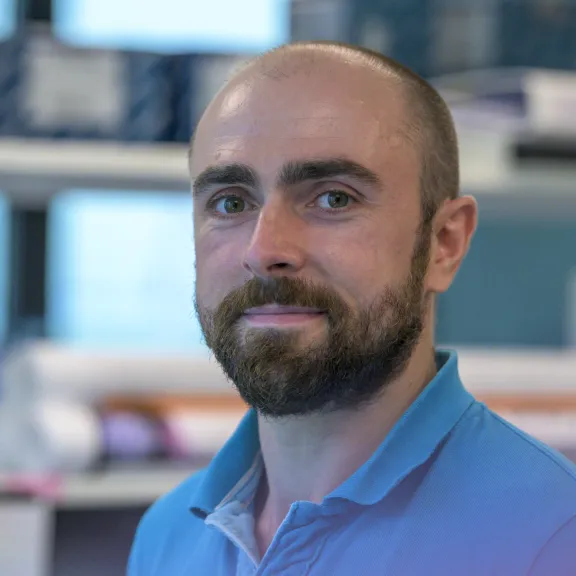
Bettencourt Prize Coups d'Élan pour la recherche française
The Bettencourt Prize Coups d'Élan pour la recherche française was created by the Foundation in 2000. It has rewarded 78 French laboratories and more than 900 researchers have benefited from this prize. Until 2021, this prize was awarded each year to four research teams, from Inserm and the CNRS Institute of Biological Sciences. The amount of the prize endowment was 250,000 euros per laboratory.
All the award-winners